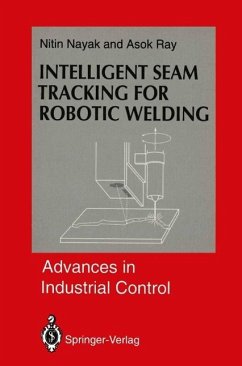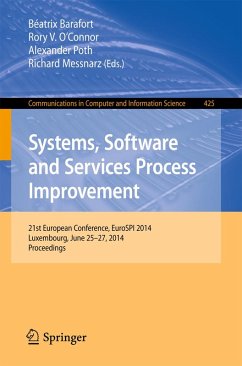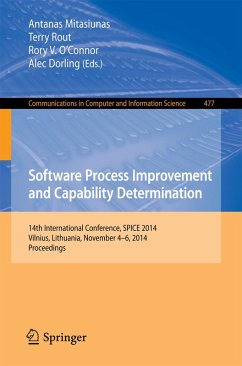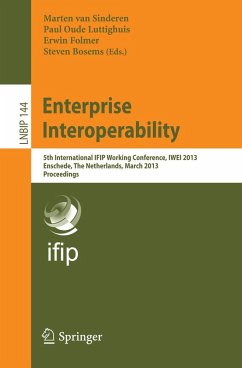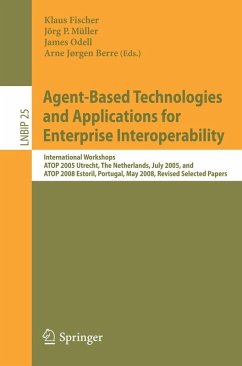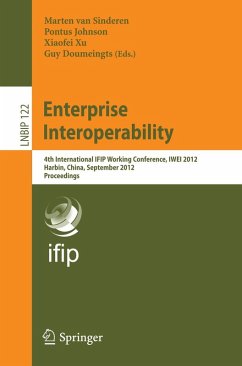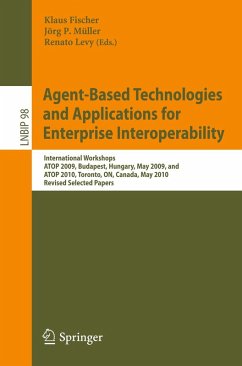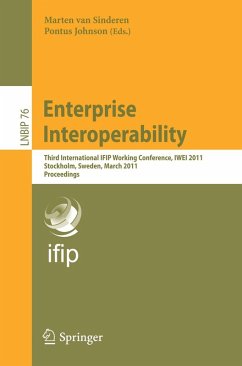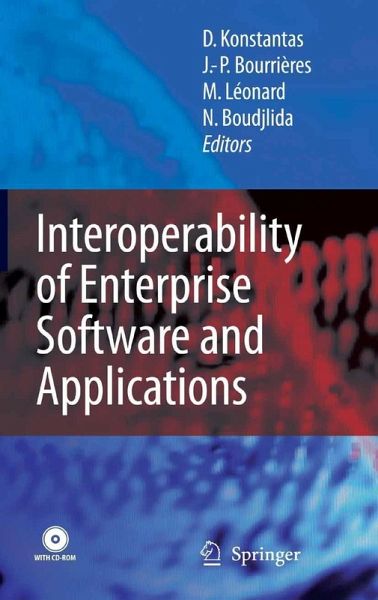
Interoperability of Enterprise Software and Applications (eBook, PDF)
Versandkostenfrei!
Sofort per Download lieferbar
105,95 €
inkl. MwSt.

PAYBACK Punkte
53 °P sammeln!
Interoperability: the ability of a system or a product to work with other systems or products without special effort from the user is a key issue in manufacturing and industrial enterprise generally. It is fundamental to the production of goods and services quickly and at low cost at the same time as maintaining levels of quality and customisation.Composed of 40 papers of international authorship, Interoperability of Enterprise Software and Applications ranges from academic research through case studies to industrial experience of interoperability. Many of the papers have examples and illustra...
Interoperability: the ability of a system or a product to work with other systems or products without special effort from the user is a key issue in manufacturing and industrial enterprise generally. It is fundamental to the production of goods and services quickly and at low cost at the same time as maintaining levels of quality and customisation.
Composed of 40 papers of international authorship, Interoperability of Enterprise Software and Applications ranges from academic research through case studies to industrial experience of interoperability. Many of the papers have examples and illustrations calculated to deepen understanding and generate new ideas.
A concise reference to the state of the art in software interoperability, Interoperability of Enterprise Software and Applications will be of great value to engineers and computer scientists working in manufacturing and other process industries and to software engineers and electronic and manufacturing engineers working in the academic environment.
Composed of 40 papers of international authorship, Interoperability of Enterprise Software and Applications ranges from academic research through case studies to industrial experience of interoperability. Many of the papers have examples and illustrations calculated to deepen understanding and generate new ideas.
A concise reference to the state of the art in software interoperability, Interoperability of Enterprise Software and Applications will be of great value to engineers and computer scientists working in manufacturing and other process industries and to software engineers and electronic and manufacturing engineers working in the academic environment.
Dieser Download kann aus rechtlichen Gründen nur mit Rechnungsadresse in A, B, BG, CY, CZ, D, DK, EW, E, FIN, F, GR, HR, H, IRL, I, LT, L, LR, M, NL, PL, P, R, S, SLO, SK ausgeliefert werden.



